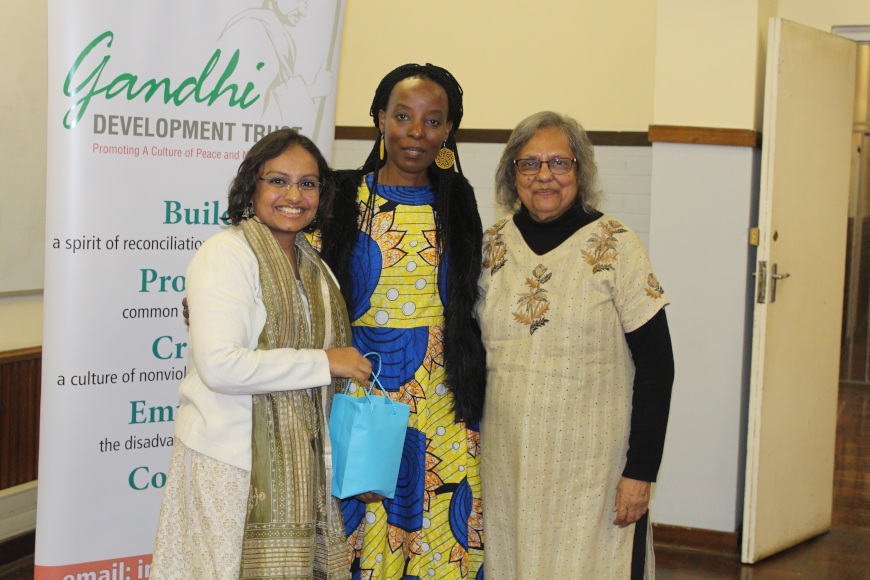The Durban University of Technology (DUT) Journalism Programme hosted the 11th annual Mahatma Gandhi Media Lecture (MGML) in partnership with the Gandhi Development Trust (GDT), at City Campus last week.
In attendance were Advocate Robin Sewlal, DUT Journalism staff, students and representatives from the Gandhi Development Trust.
Speaking at the event, Professor Sibusiso Moyo, DVC: Research and Innovation at DUT, welcomed the keynote speaker, Mrs Kajari Biswas, who is the Head of Chancery at the Indian Consulate in Durban.
She added that the lecture was important, since it is held in the midst of the National Women’s Month Celebrations. “The purpose of the lecture also marks the 150th anniversary year of Mahatma Gandhi, and celebrates a remarkable man, who has provided a vast contribution to peaceful freedom struggles across the world. It is also the right time to have and direct talks around gender-based violence and the rights of women, as his teachings also remind us that as human beings we have the ability to change the world through nonviolent social action,” she said.
Also, speaking at the event was Ela Gandhi, the granddaughter of Mahatma Gandhi. She welcomed the partnership between DUT and the Gandhi Development Trust, saying that the Journalism department was a very important one in South Africa. “We (the Gandhi Development Trust,) can see how media affects people’s knowledge, in that way, you (students) actually influence the way people think. You carry a very important burden in your hands and as you graduate and go out in the world of media, we feel its important to carry some of the values, especially on the issue of gender violence,” she stressed.
Elaborating more on her role at the Indian Consulate and the issues pertaining to gender and media was Mrs Biswas, who was elated to speak and hear from the DUT journalism students. “When I speak to people younger than me I keep learning. Being a diplomat, from the little that I have seen about the media in Dubai where I was posted, the media was very controlled. When you have young minds, your minds are strong but as you grow old you start accepting ideas from all sorts of people. It’s very important to inspect every little fact that is given to you early, and journalism is going to train you for that,” she said.
She added that as future journalists, if students are focusing on issues that are not a selling point but a transformation point than they are growing up to be better journalists.
“If you lived amongst violence and or witnessed it, chances are it is exactly what you are going to do which is a shame and a pity. Very few of you will learn to transform beyond that and that is what leadership is all about, those who can come out of difficult circumstances and shape and change the world,” she stressed.
Biswas also spoke about the injustices that women face in India, touching on the plight of young, widowed women, especially young girls. and the age-old customs they faced. Her advice was for the new-age journalists to address and look at the old ritual and customs and uncover unjust practices.“Everyone needs to work together, and that is when non-violence comes in. Conflict is a natural state of being, you are all are different people and you will always have differences but what you do with the differences is important as well as the path you take,” she said.
The general consensus from students were that they had enjoyed the talk given as well as the opportunity to ask pertinent questions pertaining to gender violence and media.
Pictured: Keynote speaker, Mrs Kajari Biswas, Professor Sibusiso Moyo DVC: Research and Innovation at DUT, and Ela Gandhi.
Waheeda Peters


